Opinion: When parents' dreams threaten to sink the next generation of sailors
YACHT-Redaktion
· 29.03.2025
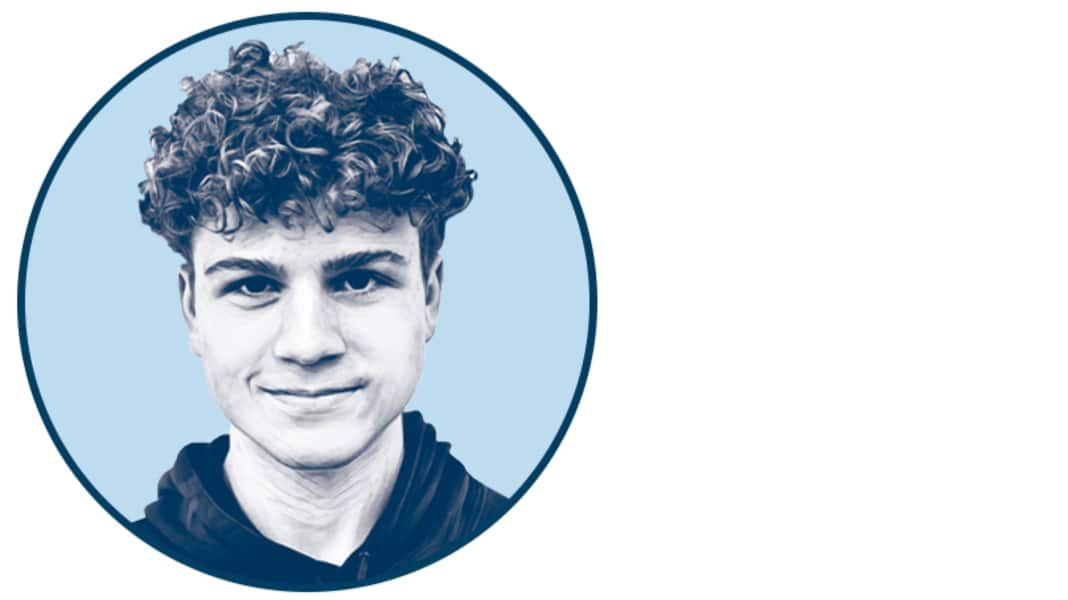
Dear readers,
while Boris Herrmanns participation in the last Vendée Globe or Germany SailGP-team led by Erik Heil, it is worth taking a look behind the scenes at the start of the season: What exactly happens in the youth development programme of German sailing? What leads to success and, above all, how do we manage to prevail against consoles, PCs and smartphones in order to get children interested in sailing in the long term? Most people start with the Opti - also known as "the smallest three-man boat in the world".
These and similar cynical sayings are all too familiar from the regatta scene. While the sport of sailing likes to proudly point out its potential to promote independence and responsibility at a young age, quite a few of the 403 Opti A sailors currently listed on the ranking list for qualifying for the German Championship are travelling halfway across the country with a solid shore crew consisting of their parents (plus grandparents, aunts and uncles if they wish). Of course, due to the age restriction of 15 years, the helmsmen of the entry-level boat class are logistically dependent on parents, club and association structures. However, the activities of the notorious Opti parents go far beyond just driving: in the hectic hustle and bustle between the boat park and the regatta office, the parents sometimes act as riggers, boat builders, cooks, meteorologists and much more.
It has been proven that the kind-hearted support of these "helicopter parents", often referred to as "opti-fathers and mothers", often has a negative effect on children's development. Various studies show that excessive influence can inhibit the independence of young athletes in the long term and even reduce their well-being and performance - in individual cases, there is even a risk of psychological stress or anxiety developing as a result.
However, it is also clear that parents play a fundamental role in young sailing careers and, as already mentioned, the children are also dependent on their support. In addition to the "helicopter parents", another, closely related species stands out in particular. This type of Opti parent is characterised by the outward appearance of an Olympic breed. I still remember one incident from my own Opti days most vividly. Shortly before I switched to Opti-A, I was harshly criticised by a local parent at a weekend regatta on Schluchsee for being clearly too old for Opti-B. He himself taught his children to swim at the age of two and, if possible, put them in an Opti on the day of their seahorse test. He wanted them to sail and win their first regattas at the age of four and then switch to Opti A at the age of eight at the latest. After numerous successes at the age of 13, he then switched back to one of the pre-Olympic youth boat classes. And after that, the path was clearly paved: titles, titles, titles and at 18 to Olympia!
Tina Lutz is the only German Opti world champion to date (2005) who later made it to the Olympic Games. The then 14-year-old became a sailing star in Germany overnight. In the years that followed, Lutz saw her triumph alternately as a "millstone" and as an honour with added value. The young sailor from Chiemsee was labelled the "talent of the century" and was often measured by her exceptional performance. "I had to work a lot on not putting myself under so much pressure all the time," said the Olympic silver medallist looking back. She is not alone among the highly hyped talents of all sports with such experiences.
Such a high level of specialisation with such a high workload at such a young age has also been proven to lead to high drop-out rates. In sailing, these rates are said to be between 50 and 75 per cent when switching from the Optimist. I can confirm this from my own experience. It is particularly unfortunate that in many cases it is not possible to keep the athletes concerned at least in recreational sailing. Instead, many turn their backs on sailing completely.
This brings me to a somewhat more recent, but no less worrying development in society, which also seems to be reflected in sailing: a lack of commitment!
After all, drop-outs are not uncommon after just a few months, even for complete beginners. It comes as no surprise to me when I hear some children's leisure calendars: piano lessons on Monday, hockey training on Tuesday, sailing on Wednesday afternoon directly after handball training, hobby horseriding on Thursday after school, and so on. When is there enough time to get involved in sailing at all?
Some readers may accuse me of contradicting myself at this point, as I have previously spoken out against too much specialisation and now against too much diversification. I would like to point out that there is a certain middle ground between seven hobbies on seven days of the week and a single hobby with enormous pressure to perform.
After all, the enormous fragmentation of children's and young people's leisure time ultimately harms all types of sport. Surprise: science already exists on this problem too. The studies show, among other things, that in addition to intrinsic motivation, appropriate support from parents and coaches as well as a strong team spirit lead to long-term identification with the sport. This requires regular attendance at training sessions over a longer period of time. The oversupply of alternative programmes and the last-minute cancellations via WhatsApp that are increasingly becoming the norm are not conducive to this and could lead to less committed and unreliable members in all clubs.
In sailing in particular, we should therefore strengthen our clubs and voluntary work in order to provide high-quality training that not only conveys safety and fun on the water, but also offers an incredible amount for the rest of life. Hardly any other hobby can offer a child so much independence (independent maintenance of equipment), self-confidence (being exposed to the elements and mastering difficult situations alone), responsibility (steering a boat or ship alone) and risk management (assessing their own abilities and equipment in relation to the prevailing conditions). Especially at a time when sailing is becoming increasingly popular (e.g. through Boris Herrmann, SailGP and co.), these values should be the figurehead and focus of the sport instead of pure performance orientation or self-realisation trips by some parents.
I didn't make it to the Olympics, but sailing has given me a feeling of freedom and home on the water, a lot of joy and friends, as well as a great deal on a personal level. Sailing is still an integral part of my life and I can't imagine life without it. I do my best to pass on this passion and am convinced that such an approach will bring the greatest social and sporting success in the long term!
Max Gasser
YACHT editor
Recommended reading from the editorial team

New podcast episode
Ex-owner of the "Ethel von Brixham" talks exclusively about the accident
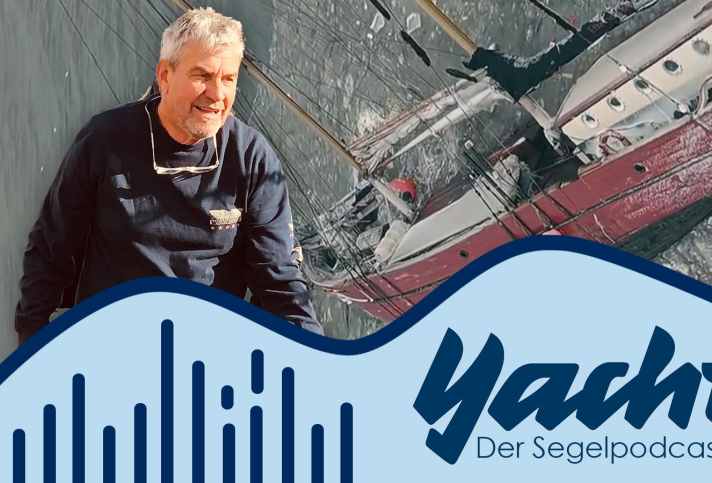
The traditional sailing ship "Ethel von Brixham" is history after an accident off Cuxhaven. Gerhard Bialek talks about the dramatic end in the YACHT podcast.
Distress at sea
Rescue off Gran Canaria - "Everything went like in the textbook":
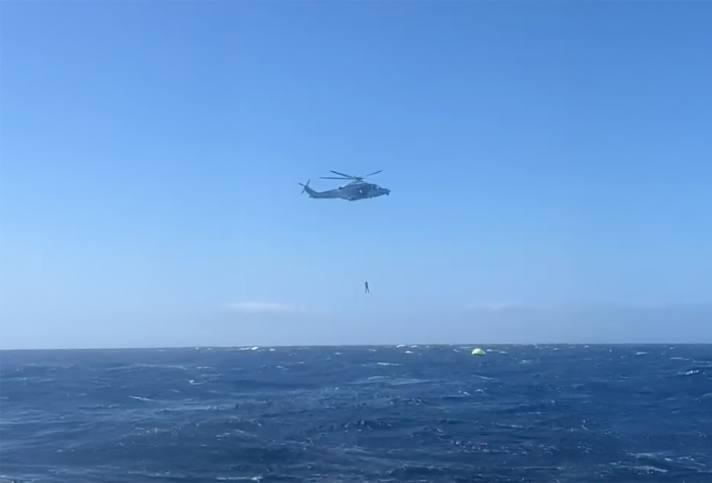
Within minutes, the Bavaria 45 Vlie sinks off Gran Canaria: Skipper Kai Linnenbrügger describes the shock, the rescue by helicopter and why the real disaster only began on land after the sinking.
Vendée Globe
999 days until the start - Boris Herrmann on the new build
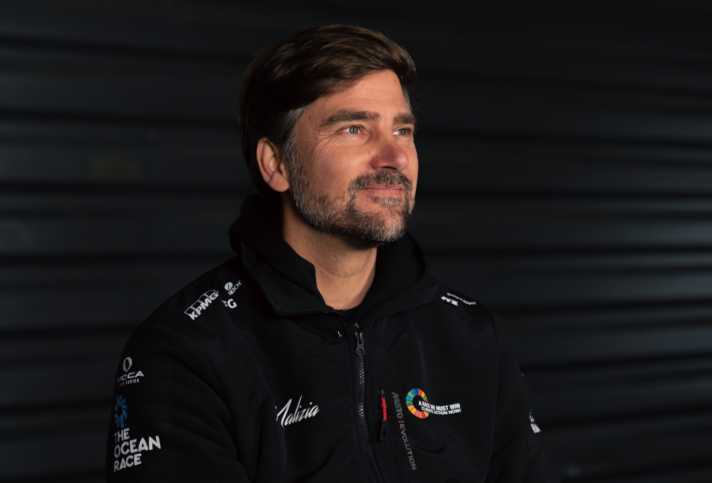
Boris Herrmann looks forward to the "Malizia 4" launch. 999 days before the Vendée Globe, Malizia's skipper reflects on the history and design of his Imocas.
Steinhuder Meer
Dispute over one-year sailing ban due to prohibited night sailing
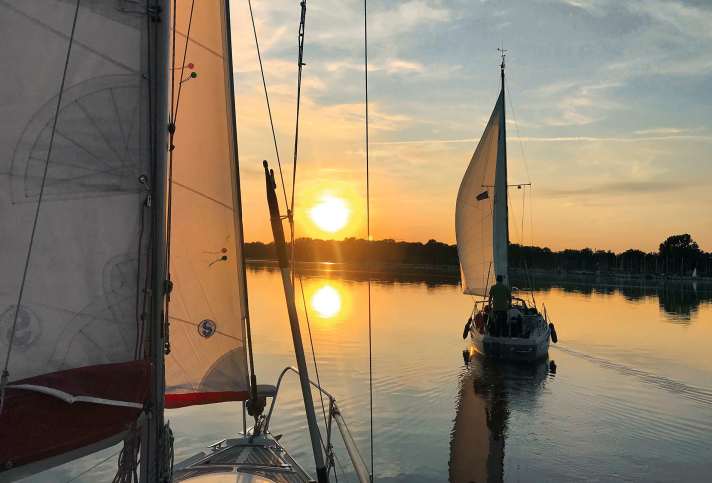
Controversial penalty: Was the Hanover region allowed to ban a sailor from sailing on the Steinhuder Meer for a year? A court must now clarify this.
Bibber winter
Ice art in the harbours and along the coasts
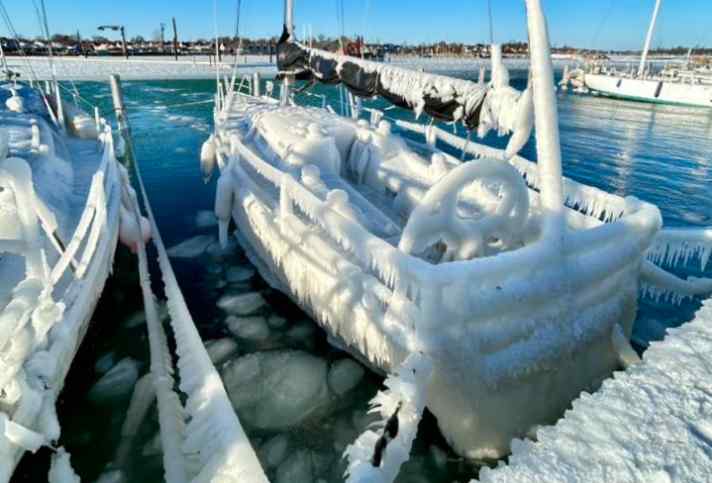
The beaver winter continues to have Europe firmly in its grip. Our photo gallery shows the most fascinating images of this bizarre natural spectacle.
In distress
Sailing yacht sinks in five minutes - crew rescued by helicopter

On the crossing from Tenerife to Gran Canaria, the Dutch-flagged yacht "Vlie" sank after taking on massive amounts of water. Skipper Kai Linnenbrügger claims sudden contact with an unknown object. The Spanish sea rescue organisation Salvamento Marítimo rescued five people from a life raft.
Keel dinghy
Sailhorse is now being built by Neptun
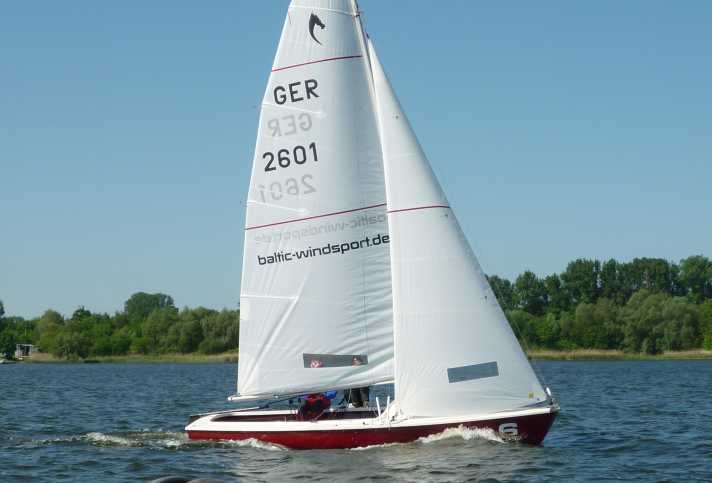
Neptun Yachts has taken over the rights and moulds of the Sailhorse class and will start production in March 2026.
Traditional sailing ship
The "Ethel of Brixham" breaks up during salvage
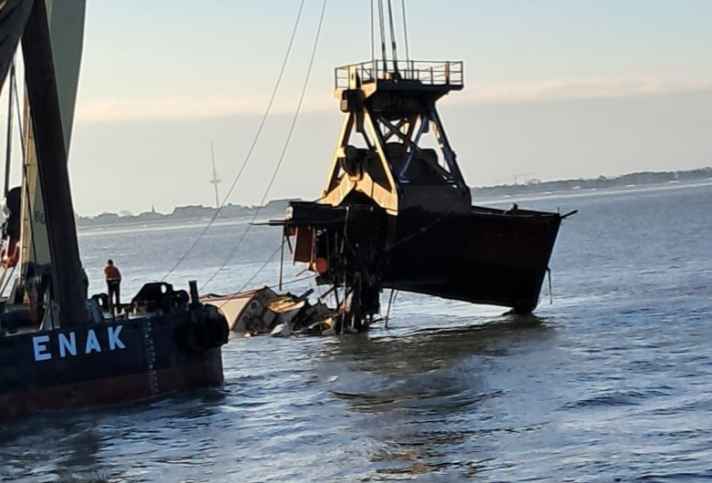
At the weekend, the Brixham trawler "Ethel von Brixham", which had been stranded on the causeway off Cuxhaven for a fortnight, was salvaged. The more than 135-year-old traditional sailing ship broke in two.
Ultim class
The new queen of the oceans in her element
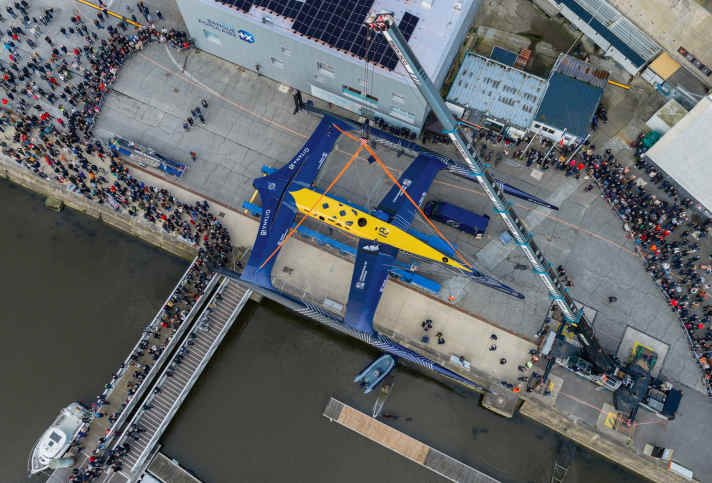
The new queen of the seas is in her element: Ariane de Rothschild and her team celebrated the launch of her Ultim giant "Gitana 18" in Lorient.
SailGP
Crash weekend with consequences, Team Germany improves
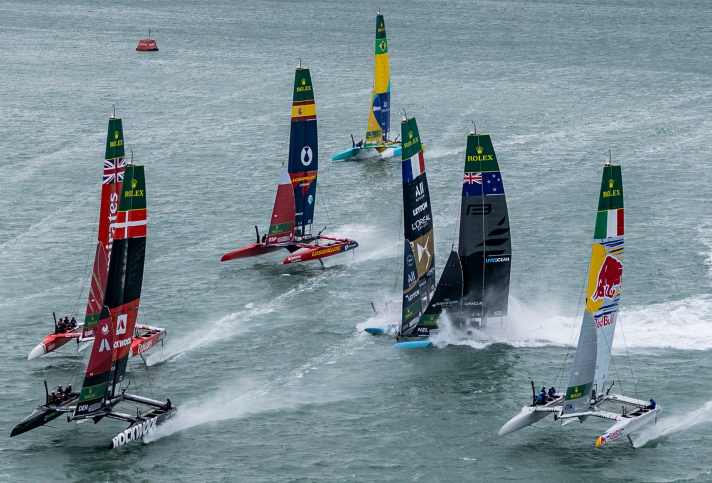
Brutal crash weekend with consequences: Sailor safety remains an issue in the SailGP. Australia's record winners secured victory in Auckland.
Newsletter: YACHT-Woche
Der Yacht Newsletter fasst die wichtigsten Themen der Woche zusammen, alle Top-Themen kompakt und direkt in deiner Mail-Box. Einfach anmelden:

